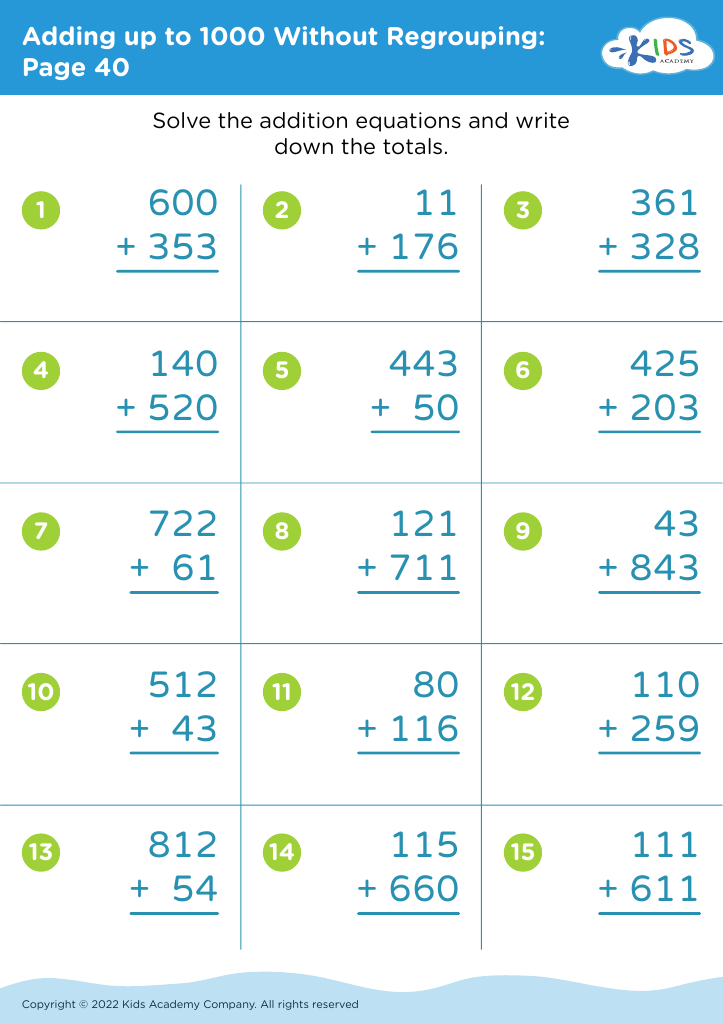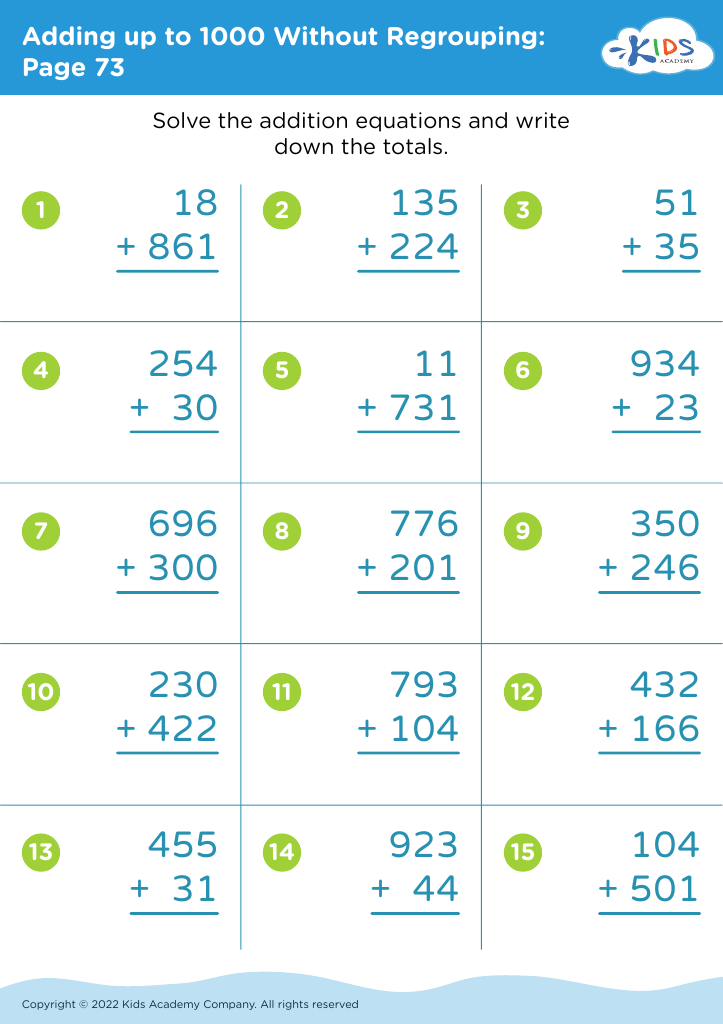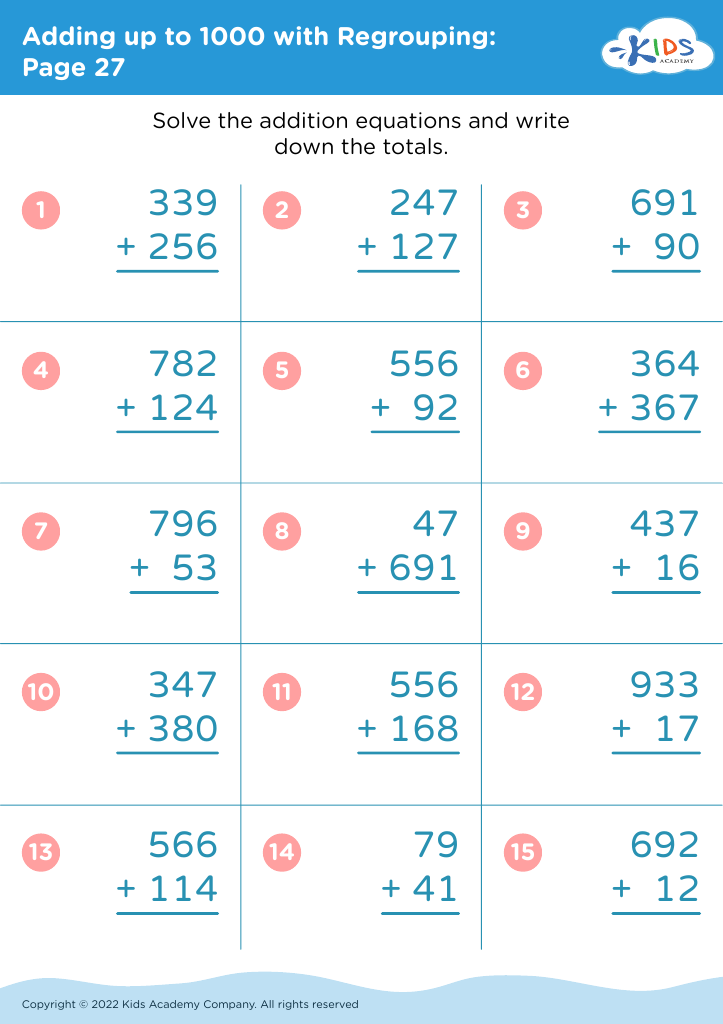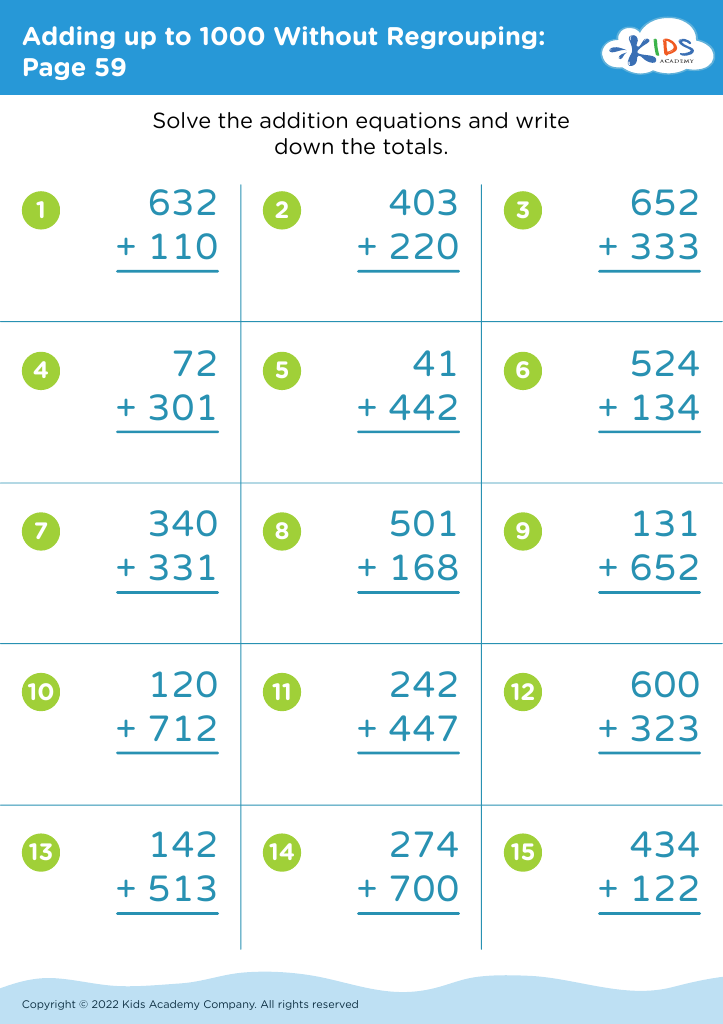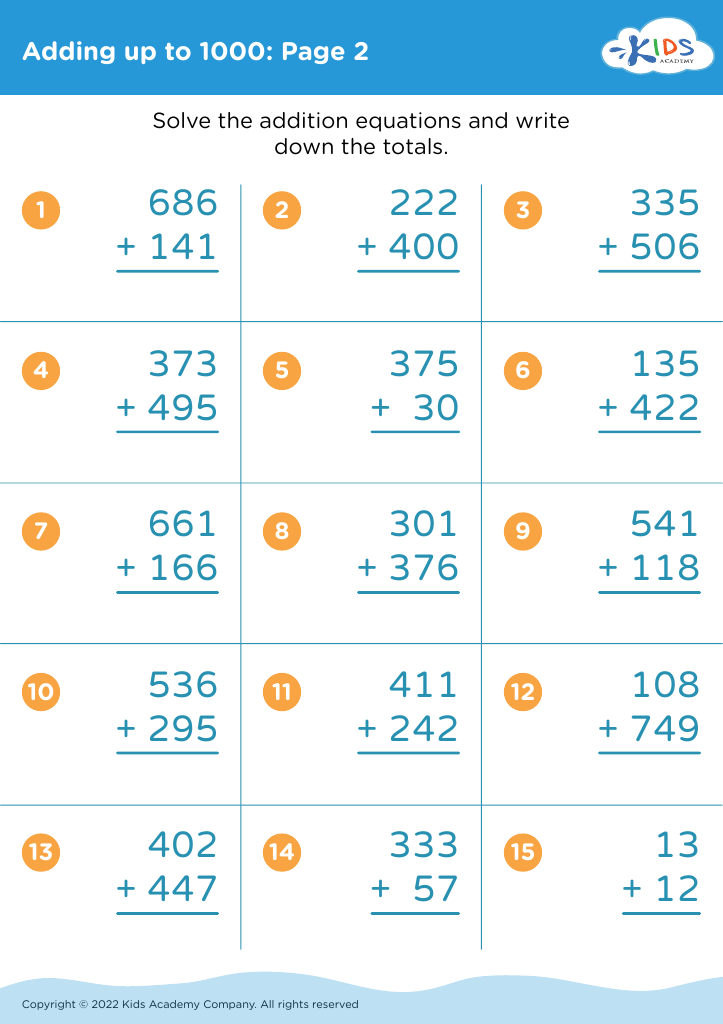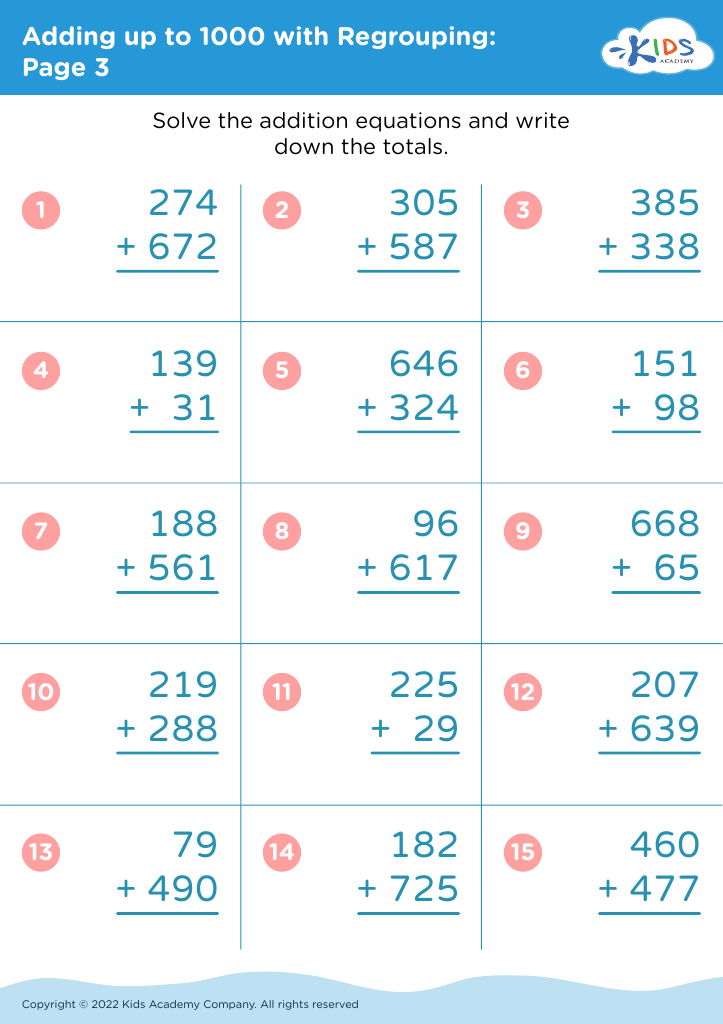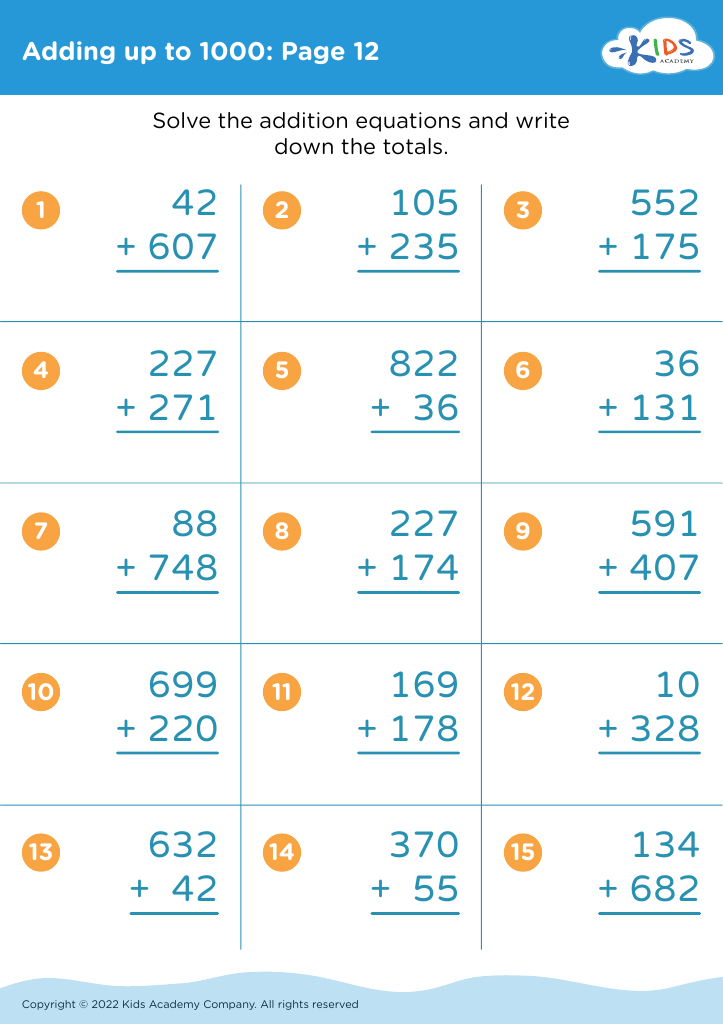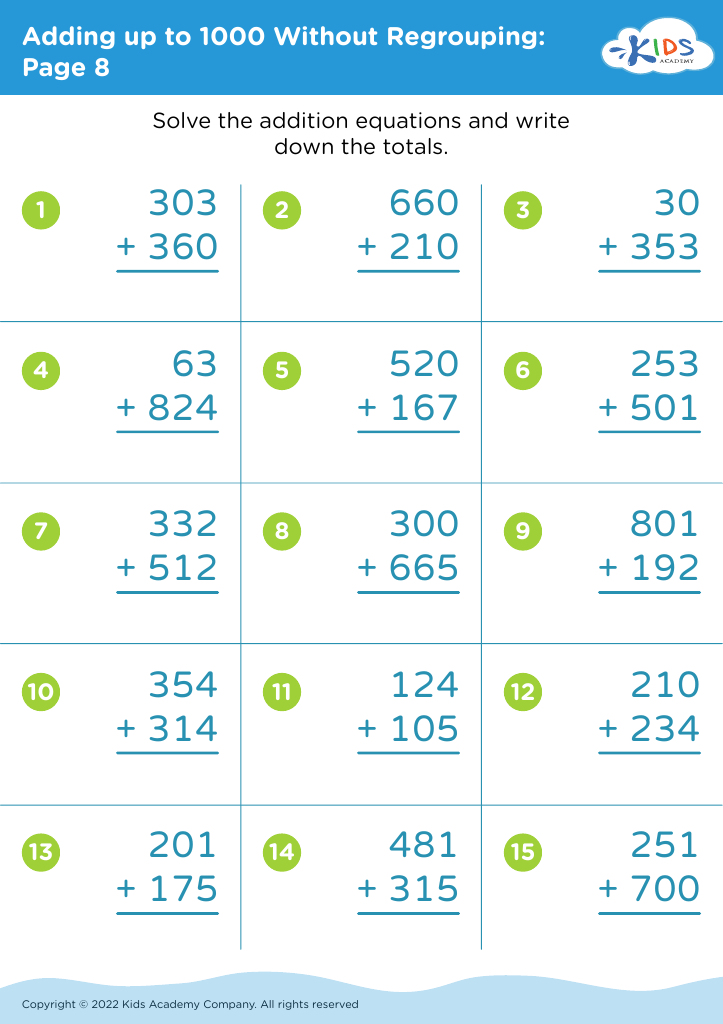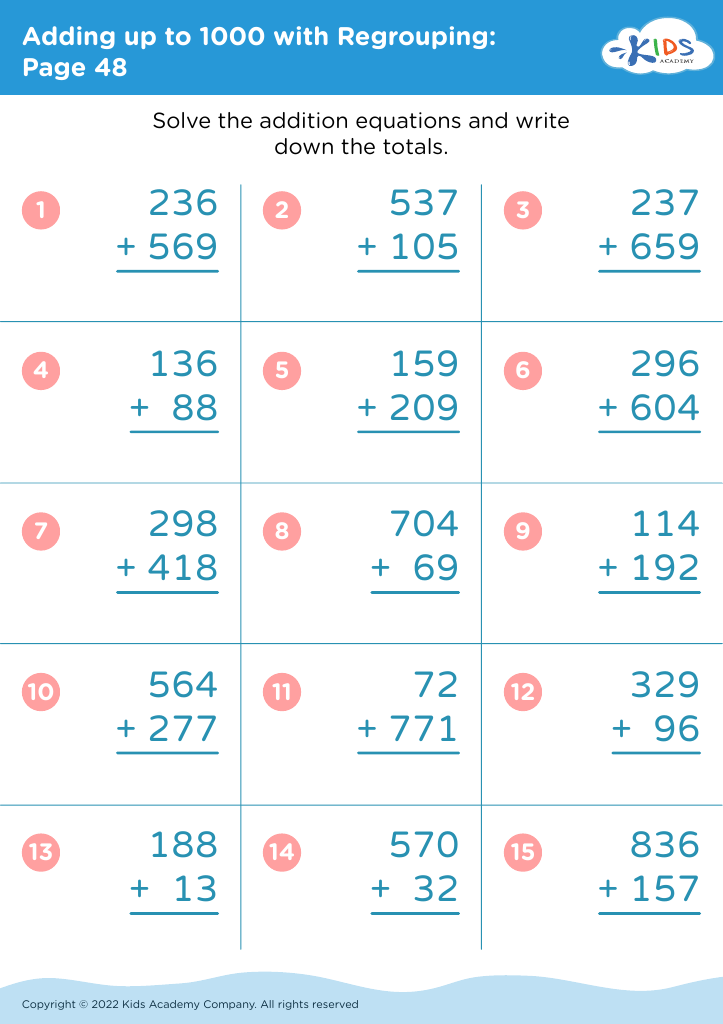Improve reading skills Adding up to 1000 Worksheets for Ages 4-7
13 filtered results
-
From - To
Boost your child's reading and math skills with our unique "Adding up to 1000 Worksheets for Ages 4-7." Tailored to young learners, these expertly designed worksheets not only reinforce essential addition concepts but also enhance reading comprehension through engaging prompts and instructions. Ideal for both classroom and home use, each activity combines fun with education, ensuring kids stay motivated while mastering new skills. Develop critical thinking, build confidence, and lay a solid foundation for future learning. Discover the joy of integrated learning today and give your child the tools they need to succeed! Explore our collection now.
Parents and teachers should prioritize improving reading skills and basic math, such as adding up to 1000, for children aged 4-7 because these foundational skills set the stage for future academic success and overall development. Reading capabilities at an early age enhance language acquisition, comprehension, and communication skills, allowing children to better express themselves and understand their surroundings. Furthermore, reading promotes cognitive development, including attention, memory, and critical thinking.
Early math skills, including adding up to 1000, are equally essential. They serve as a building block for more complex mathematical concepts and problem-solving abilities. Math skills teach children to recognize patterns, consider logic, and exercise analytical thinking, all of which are crucial for everyday life as well as academic achievements in science, technology, engineering, and mathematics (STEM) fields.
These competencies together foster a lifelong love of learning and curiosity, making children more confident and capable learners. Early intervention in reading and math also helps identify and address any potential learning difficulties, ensuring that every child receives the support they need to thrive. Therefore, investing in these areas during the critical development phase of ages 4-7 is essential for laying a strong foundation for future educational achievements.
